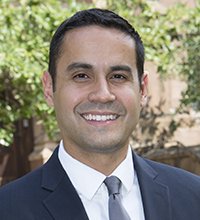Church Anew Blog
Get Updates in Your Inbox
Want to stay up-to-date with the Church Anew Blog? Sign up for our weekly blog round-up.
A Table and a Promise
I've become convinced that if Luke had chosen a picture of the gospel instead of 24 chapters of writing... [he] would have drawn for us a big table, wooden and worn and homey.
Looking For Home
"God’s abiding among us happens precisely amid, alongside, within the complexities of our experiences with home and with belonging."
Enfleshing Witness: Eric Barreto
Home is a place, yes, but it's also a commitment, a demand that God's justice would unfurl here and now, a faith that expects to taste God's grace in the people and the places where God has planted us. Home is a feeling and a commitment.
EXPLORE OUR ARCHIVE OF ARTICLES FROM
Walter Brueggemann
Get Updates in Your Inbox
Want to stay up-to-date with the Church Anew Blog? Sign up for our weekly blog round-up.




